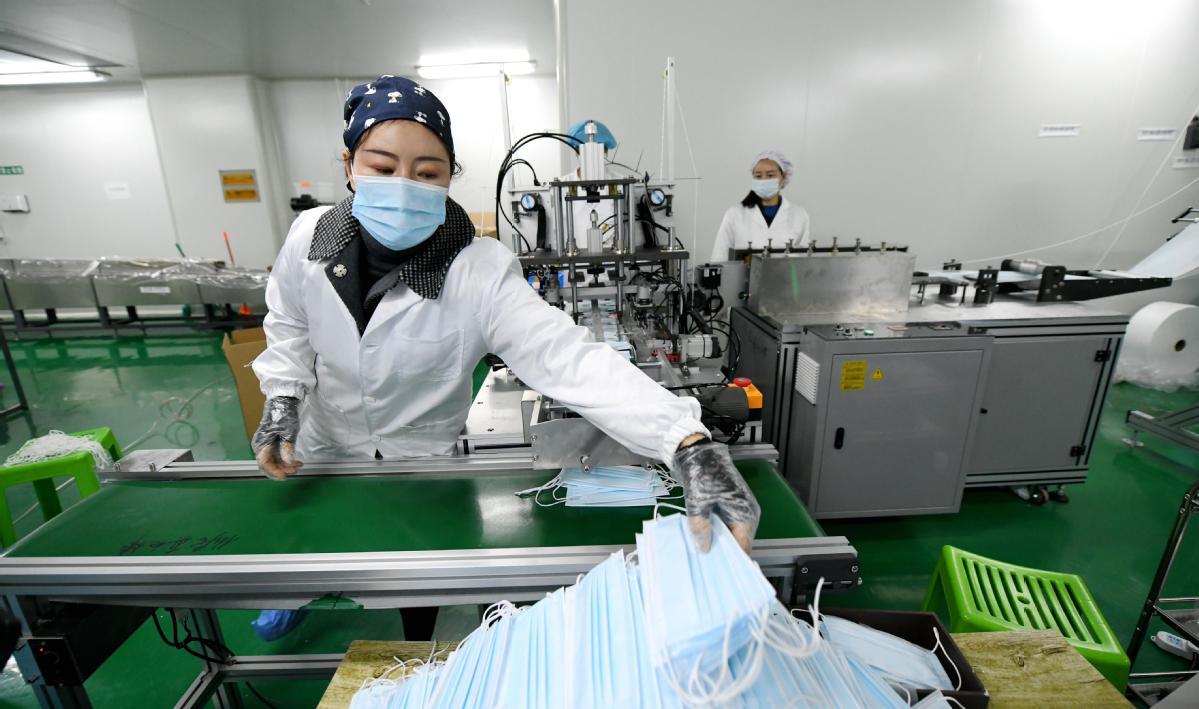
An employee works on the production line of face masks at a micro enterprise in Xianju county, Zhejiang province. (Photo: China Daily)
China's businesses are gradually getting back to work, as around 11,000 key projects outside of Hubei province have resumed work at a rate of 89.1 percent as of Friday,the country's top economic planner said on Saturday.
As of Friday, key projects in southern China had a resumption of work rate of 98.1 percent, while those in northern China reported a rate of 60.3 percent, said Ou Hong, director of the Department of Fixed Asset Investment at the Development and Reform Commission.
Ou told a news conference that despite the coronavirus epidemic's impact, the resumption of work rate in key projects has resumed gradually in the past days.
Major highway and water transportation have hit a resumption of work rate of 97 percent. Airport and major water projects reported a rate of 87 percent and 86 percent, respectively, NDRC data showed.
Zheng Jian, deputy director of the Department of Basic Industries at the NDRC, said most transportation projects have resumed work, and the country has confidence to complete transportation projects this year.
Up to now, the surveyed 533 major transportation projects have resumed work at a rate of 97.8 percent. For instance, all key railway projects have resumed work, involving 7,000 working sites and a total of 500,000 workers.
In the next step, the NDRC will make a big push to ensure orderly resumption of work and promote new transportation projects in two aspects-offering funding support and accelerating the approval process.
To date, the NDRC has issued more than 80 percent of investment plans, totaling nearly 54 billion yuan ($7.6 billion).
Zheng also highlighted the importance of infrastructure investment projects, saying the NDRC will promote the high-quality development of infrastructure construction.
Particularly, the NDRC will speed up the construction of new infrastructure such as 5G networks, artificial intelligence, industrial internet and internet of things.
"It is necessary to use new infrastructure to promote and optimize the services and improve the efficiency for traditional infrastructure,"Zheng added. "In the future, we will promote the construction of smart transportation, smart grid and smart cities, to build an infrastructure system that adapts the need of smart economy and smart society development."


